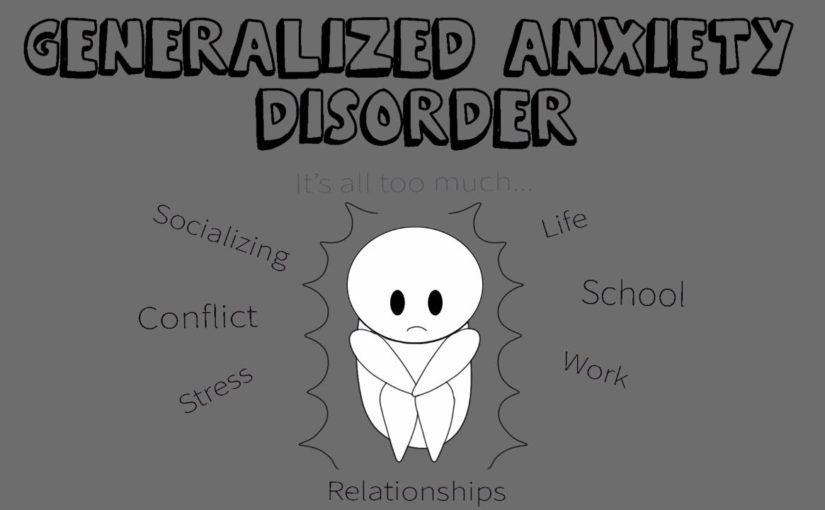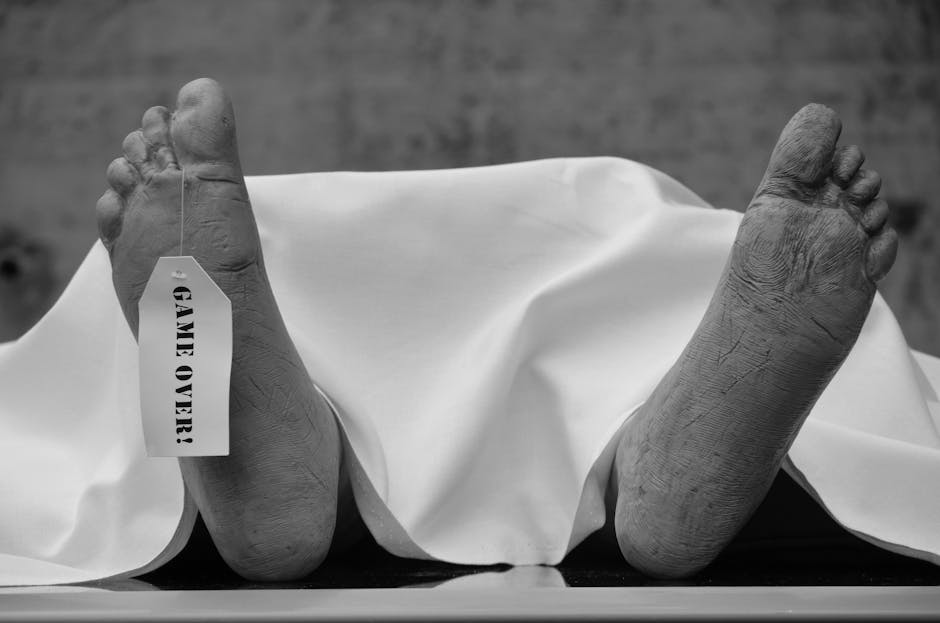 They might need Number three hey. Let’s go for a walk, we can talk about it or we can just get some fresh air. A change of environment is a choice tool for interrupting the cycle of anxiety. It distracts the brain from its worries Focusing on the world around, helps, create distance between the person and their thoughts, which ultimately makes it easier to talk about and to let go If they don’t feel like talking at least they’ll have something else To occupy their mind with Number four: is it okay? If I hug you, Consent is key, Even when it comes to hugs hands, holding, and other innocent touches. They can all be triggering to someone with anxiety. Plus there are a lot of people who just don’t like to be touched, So it’s always important to ask first. Sometimes a hug can be incredibly comforting during a difficult time like a physical reminder that you’re not alone. During extreme anxiety, though, being touched, can make one feel trapped and claustrophobic, So it’s always appreciated when someone asks before going in for a hug, It reminds them that they’re in control of the conversation Number five, I’m here, for you, no matter what is happening If you’re, going to offer to be there for someone who battles anxiety, be honest about what you’re, able to do or be ready to be open to whatever comes your way, It’s nice to hear that someone is On their side, but it can’t help if the encouragement is conditional To promise support only to disappear when things get tough, can make it difficult to trust those who make this pledge. It can make them wary of such promises in the future when they have ample evidence backing their hesitations. Authentic support is especially reassuring when you’re able to give it unconditionally building their trust and self-esteem. Number six would be advice, be helpful, or should I just listen Hugging joking, and advice, giving might be your first instinct when you see someone you love in distress, but people with anxiety sometimes feel overwhelmed and even intimidated by the constant fire of suggestions, And they can react Intensely when someone starts spouting out suggestions before they’ve even had a chance to finish talking, It might be hard, but you have to fight the urge to be a friend sometimes Instead, asking this question puts the person with anxiety in control of what happens next, Which in itself may relieve some of their anxious edge And number seven, I don’t know what to say, but I’m here, for you Honesty is always the best policy. Anxiety can be a difficult subject matter, So it’s. Okay, if you don’t know what to say or how to react Honestly, sometimes even they don’t know what to say, but it’s refreshing and reassuring to be genuine. During such a vulnerable conversation, Friends and family have admitted that they fear, saying the wrong thing or making situations worse, but that the important thing for them – isn, ‘t always what you say but to let them know that you’re there for them. No matter what We hope, we were able to give you a little insight into some of the ways that you can show your support to those living with anxiety. If you suffer from anxiety, how do you feel about the points mentioned in this video? Let us know in the comments below, If you found this video insightful, be sure to hit the like and subscribe button and share it with someone who might benefit from it too. As always thanks so much for watching and we’ll see you soon.As found on YouTubeꜱʟɪᴍᴄʀʏꜱᴛᴀʟ The World’s Only Slimming Crystal Water Bottles! The unique combination of crystals is so powerful that it has been used for decades by crystal healing experts to help thousands of men and women change their lives for the better ➯➱ ➫ ➪➬ ᴛʏᴘᴇ ᴏʀ ᴘᴀꜱᴛᴇ ʏᴏᴜʀ ᴄᴏɴᴛᴇɴᴛ ʜᴇʀᴇ [Official] ᵘᵖᵗᵒ ⁷⁰% ᵒᶠᶠ ᵗᵒᵈᵃʸ!
They might need Number three hey. Let’s go for a walk, we can talk about it or we can just get some fresh air. A change of environment is a choice tool for interrupting the cycle of anxiety. It distracts the brain from its worries Focusing on the world around, helps, create distance between the person and their thoughts, which ultimately makes it easier to talk about and to let go If they don’t feel like talking at least they’ll have something else To occupy their mind with Number four: is it okay? If I hug you, Consent is key, Even when it comes to hugs hands, holding, and other innocent touches. They can all be triggering to someone with anxiety. Plus there are a lot of people who just don’t like to be touched, So it’s always important to ask first. Sometimes a hug can be incredibly comforting during a difficult time like a physical reminder that you’re not alone. During extreme anxiety, though, being touched, can make one feel trapped and claustrophobic, So it’s always appreciated when someone asks before going in for a hug, It reminds them that they’re in control of the conversation Number five, I’m here, for you, no matter what is happening If you’re, going to offer to be there for someone who battles anxiety, be honest about what you’re, able to do or be ready to be open to whatever comes your way, It’s nice to hear that someone is On their side, but it can’t help if the encouragement is conditional To promise support only to disappear when things get tough, can make it difficult to trust those who make this pledge. It can make them wary of such promises in the future when they have ample evidence backing their hesitations. Authentic support is especially reassuring when you’re able to give it unconditionally building their trust and self-esteem. Number six would be advice, be helpful, or should I just listen Hugging joking, and advice, giving might be your first instinct when you see someone you love in distress, but people with anxiety sometimes feel overwhelmed and even intimidated by the constant fire of suggestions, And they can react Intensely when someone starts spouting out suggestions before they’ve even had a chance to finish talking, It might be hard, but you have to fight the urge to be a friend sometimes Instead, asking this question puts the person with anxiety in control of what happens next, Which in itself may relieve some of their anxious edge And number seven, I don’t know what to say, but I’m here, for you Honesty is always the best policy. Anxiety can be a difficult subject matter, So it’s. Okay, if you don’t know what to say or how to react Honestly, sometimes even they don’t know what to say, but it’s refreshing and reassuring to be genuine. During such a vulnerable conversation, Friends and family have admitted that they fear, saying the wrong thing or making situations worse, but that the important thing for them – isn, ‘t always what you say but to let them know that you’re there for them. No matter what We hope, we were able to give you a little insight into some of the ways that you can show your support to those living with anxiety. If you suffer from anxiety, how do you feel about the points mentioned in this video? Let us know in the comments below, If you found this video insightful, be sure to hit the like and subscribe button and share it with someone who might benefit from it too. As always thanks so much for watching and we’ll see you soon.As found on YouTubeꜱʟɪᴍᴄʀʏꜱᴛᴀʟ The World’s Only Slimming Crystal Water Bottles! The unique combination of crystals is so powerful that it has been used for decades by crystal healing experts to help thousands of men and women change their lives for the better ➯➱ ➫ ➪➬ ᴛʏᴘᴇ ᴏʀ ᴘᴀꜱᴛᴇ ʏᴏᴜʀ ᴄᴏɴᴛᴇɴᴛ ʜᴇʀᴇ [Official] ᵘᵖᵗᵒ ⁷⁰% ᵒᶠᶠ ᵗᵒᵈᵃʸ!7 Reassuring Things To Say To Someone With Anxiety
Narrator, Did you know that, according to statistics, only a small percentage of you who watch our videos are subscribed? Do you enjoy our content? If so, we encourage you to subscribe to our channel. Your support means a lot to us and it helps YouTube.’s. Algorithm in promoting more of our mental health content, Hey there’s Psych2Goers and welcome back to another video. Thank you all so much for the love and support that you give us. It enables us to dive deeper into everyday psychology with you. So shall we Are you concerned about someone’s, mental health? Do you find yourself at a loss over how to react when the topic does come up? Well, they would never want to force a reaction out of you. It can be uncomfortable to watch you struggle with what to say when they know you mean well, There are many ways to be supportive without overstepping boundaries or taking on more than you can handle It’s important to help you understand from a psychology-oriented perspective. The thoughts and emotions behind anxiety, so you can be well equipped to be supportive. This is meant as a self-improvement guide and should not be used as self-treatment. If you or someone you know is struggling with anxiety or any mental health issues be sure to seek help Having a supportive environment does help, but professional guidance and advice go a long way With that said, here are seven reassuring things to say to someone with anxiety. Number one you have my attention or I’m listening. These phrases can mean a lot to someone with anxiety. They’re, often too afraid to bring up anxiety-related topics because they believe their anxiety makes it hard to talk to them or difficult to be around So hearing. This is incredibly reassuring. It helps to make them feel encouraged, so they can bring it up without hesitation in the future. This makes it feel like whoever’s. Listening truly cares about what they have to say, and it makes them want to return the favor whenever you may need to talk Two. What can I do to help you Do their plants need watering? Is there anything they’re craving for lunch Ask the person in distress. What might help you’re, letting them take? Control of the situation. Ask them to get creative. They can Keep in mind, though, that some people can become more anxious in the wake of decision-making, Sometimes it can feel like one more thing to worry about, but it still gives them a chance to ask for anything.  They might need Number three hey. Let’s go for a walk, we can talk about it or we can just get some fresh air. A change of environment is a choice tool for interrupting the cycle of anxiety. It distracts the brain from its worries Focusing on the world around, helps, create distance between the person and their thoughts, which ultimately makes it easier to talk about and to let go If they don’t feel like talking at least they’ll have something else To occupy their mind with Number four: is it okay? If I hug you, Consent is key, Even when it comes to hugs hands, holding, and other innocent touches. They can all be triggering to someone with anxiety. Plus there are a lot of people who just don’t like to be touched, So it’s always important to ask first. Sometimes a hug can be incredibly comforting during a difficult time like a physical reminder that you’re not alone. During extreme anxiety, though, being touched, can make one feel trapped and claustrophobic, So it’s always appreciated when someone asks before going in for a hug, It reminds them that they’re in control of the conversation Number five, I’m here, for you, no matter what is happening If you’re, going to offer to be there for someone who battles anxiety, be honest about what you’re, able to do or be ready to be open to whatever comes your way, It’s nice to hear that someone is On their side, but it can’t help if the encouragement is conditional To promise support only to disappear when things get tough, can make it difficult to trust those who make this pledge. It can make them wary of such promises in the future when they have ample evidence backing their hesitations. Authentic support is especially reassuring when you’re able to give it unconditionally building their trust and self-esteem. Number six would be advice, be helpful, or should I just listen Hugging joking, and advice, giving might be your first instinct when you see someone you love in distress, but people with anxiety sometimes feel overwhelmed and even intimidated by the constant fire of suggestions, And they can react Intensely when someone starts spouting out suggestions before they’ve even had a chance to finish talking, It might be hard, but you have to fight the urge to be a friend sometimes Instead, asking this question puts the person with anxiety in control of what happens next, Which in itself may relieve some of their anxious edge And number seven, I don’t know what to say, but I’m here, for you Honesty is always the best policy. Anxiety can be a difficult subject matter, So it’s. Okay, if you don’t know what to say or how to react Honestly, sometimes even they don’t know what to say, but it’s refreshing and reassuring to be genuine. During such a vulnerable conversation, Friends and family have admitted that they fear, saying the wrong thing or making situations worse, but that the important thing for them – isn, ‘t always what you say but to let them know that you’re there for them. No matter what We hope, we were able to give you a little insight into some of the ways that you can show your support to those living with anxiety. If you suffer from anxiety, how do you feel about the points mentioned in this video? Let us know in the comments below, If you found this video insightful, be sure to hit the like and subscribe button and share it with someone who might benefit from it too. As always thanks so much for watching and we’ll see you soon.As found on YouTubeꜱʟɪᴍᴄʀʏꜱᴛᴀʟ The World’s Only Slimming Crystal Water Bottles! The unique combination of crystals is so powerful that it has been used for decades by crystal healing experts to help thousands of men and women change their lives for the better ➯➱ ➫ ➪➬ ᴛʏᴘᴇ ᴏʀ ᴘᴀꜱᴛᴇ ʏᴏᴜʀ ᴄᴏɴᴛᴇɴᴛ ʜᴇʀᴇ [Official] ᵘᵖᵗᵒ ⁷⁰% ᵒᶠᶠ ᵗᵒᵈᵃʸ!
They might need Number three hey. Let’s go for a walk, we can talk about it or we can just get some fresh air. A change of environment is a choice tool for interrupting the cycle of anxiety. It distracts the brain from its worries Focusing on the world around, helps, create distance between the person and their thoughts, which ultimately makes it easier to talk about and to let go If they don’t feel like talking at least they’ll have something else To occupy their mind with Number four: is it okay? If I hug you, Consent is key, Even when it comes to hugs hands, holding, and other innocent touches. They can all be triggering to someone with anxiety. Plus there are a lot of people who just don’t like to be touched, So it’s always important to ask first. Sometimes a hug can be incredibly comforting during a difficult time like a physical reminder that you’re not alone. During extreme anxiety, though, being touched, can make one feel trapped and claustrophobic, So it’s always appreciated when someone asks before going in for a hug, It reminds them that they’re in control of the conversation Number five, I’m here, for you, no matter what is happening If you’re, going to offer to be there for someone who battles anxiety, be honest about what you’re, able to do or be ready to be open to whatever comes your way, It’s nice to hear that someone is On their side, but it can’t help if the encouragement is conditional To promise support only to disappear when things get tough, can make it difficult to trust those who make this pledge. It can make them wary of such promises in the future when they have ample evidence backing their hesitations. Authentic support is especially reassuring when you’re able to give it unconditionally building their trust and self-esteem. Number six would be advice, be helpful, or should I just listen Hugging joking, and advice, giving might be your first instinct when you see someone you love in distress, but people with anxiety sometimes feel overwhelmed and even intimidated by the constant fire of suggestions, And they can react Intensely when someone starts spouting out suggestions before they’ve even had a chance to finish talking, It might be hard, but you have to fight the urge to be a friend sometimes Instead, asking this question puts the person with anxiety in control of what happens next, Which in itself may relieve some of their anxious edge And number seven, I don’t know what to say, but I’m here, for you Honesty is always the best policy. Anxiety can be a difficult subject matter, So it’s. Okay, if you don’t know what to say or how to react Honestly, sometimes even they don’t know what to say, but it’s refreshing and reassuring to be genuine. During such a vulnerable conversation, Friends and family have admitted that they fear, saying the wrong thing or making situations worse, but that the important thing for them – isn, ‘t always what you say but to let them know that you’re there for them. No matter what We hope, we were able to give you a little insight into some of the ways that you can show your support to those living with anxiety. If you suffer from anxiety, how do you feel about the points mentioned in this video? Let us know in the comments below, If you found this video insightful, be sure to hit the like and subscribe button and share it with someone who might benefit from it too. As always thanks so much for watching and we’ll see you soon.As found on YouTubeꜱʟɪᴍᴄʀʏꜱᴛᴀʟ The World’s Only Slimming Crystal Water Bottles! The unique combination of crystals is so powerful that it has been used for decades by crystal healing experts to help thousands of men and women change their lives for the better ➯➱ ➫ ➪➬ ᴛʏᴘᴇ ᴏʀ ᴘᴀꜱᴛᴇ ʏᴏᴜʀ ᴄᴏɴᴛᴇɴᴛ ʜᴇʀᴇ [Official] ᵘᵖᵗᵒ ⁷⁰% ᵒᶠᶠ ᵗᵒᵈᵃʸ!
 They might need Number three hey. Let’s go for a walk, we can talk about it or we can just get some fresh air. A change of environment is a choice tool for interrupting the cycle of anxiety. It distracts the brain from its worries Focusing on the world around, helps, create distance between the person and their thoughts, which ultimately makes it easier to talk about and to let go If they don’t feel like talking at least they’ll have something else To occupy their mind with Number four: is it okay? If I hug you, Consent is key, Even when it comes to hugs hands, holding, and other innocent touches. They can all be triggering to someone with anxiety. Plus there are a lot of people who just don’t like to be touched, So it’s always important to ask first. Sometimes a hug can be incredibly comforting during a difficult time like a physical reminder that you’re not alone. During extreme anxiety, though, being touched, can make one feel trapped and claustrophobic, So it’s always appreciated when someone asks before going in for a hug, It reminds them that they’re in control of the conversation Number five, I’m here, for you, no matter what is happening If you’re, going to offer to be there for someone who battles anxiety, be honest about what you’re, able to do or be ready to be open to whatever comes your way, It’s nice to hear that someone is On their side, but it can’t help if the encouragement is conditional To promise support only to disappear when things get tough, can make it difficult to trust those who make this pledge. It can make them wary of such promises in the future when they have ample evidence backing their hesitations. Authentic support is especially reassuring when you’re able to give it unconditionally building their trust and self-esteem. Number six would be advice, be helpful, or should I just listen Hugging joking, and advice, giving might be your first instinct when you see someone you love in distress, but people with anxiety sometimes feel overwhelmed and even intimidated by the constant fire of suggestions, And they can react Intensely when someone starts spouting out suggestions before they’ve even had a chance to finish talking, It might be hard, but you have to fight the urge to be a friend sometimes Instead, asking this question puts the person with anxiety in control of what happens next, Which in itself may relieve some of their anxious edge And number seven, I don’t know what to say, but I’m here, for you Honesty is always the best policy. Anxiety can be a difficult subject matter, So it’s. Okay, if you don’t know what to say or how to react Honestly, sometimes even they don’t know what to say, but it’s refreshing and reassuring to be genuine. During such a vulnerable conversation, Friends and family have admitted that they fear, saying the wrong thing or making situations worse, but that the important thing for them – isn, ‘t always what you say but to let them know that you’re there for them. No matter what We hope, we were able to give you a little insight into some of the ways that you can show your support to those living with anxiety. If you suffer from anxiety, how do you feel about the points mentioned in this video? Let us know in the comments below, If you found this video insightful, be sure to hit the like and subscribe button and share it with someone who might benefit from it too. As always thanks so much for watching and we’ll see you soon.As found on YouTubeꜱʟɪᴍᴄʀʏꜱᴛᴀʟ The World’s Only Slimming Crystal Water Bottles! The unique combination of crystals is so powerful that it has been used for decades by crystal healing experts to help thousands of men and women change their lives for the better ➯➱ ➫ ➪➬ ᴛʏᴘᴇ ᴏʀ ᴘᴀꜱᴛᴇ ʏᴏᴜʀ ᴄᴏɴᴛᴇɴᴛ ʜᴇʀᴇ [Official] ᵘᵖᵗᵒ ⁷⁰% ᵒᶠᶠ ᵗᵒᵈᵃʸ!
They might need Number three hey. Let’s go for a walk, we can talk about it or we can just get some fresh air. A change of environment is a choice tool for interrupting the cycle of anxiety. It distracts the brain from its worries Focusing on the world around, helps, create distance between the person and their thoughts, which ultimately makes it easier to talk about and to let go If they don’t feel like talking at least they’ll have something else To occupy their mind with Number four: is it okay? If I hug you, Consent is key, Even when it comes to hugs hands, holding, and other innocent touches. They can all be triggering to someone with anxiety. Plus there are a lot of people who just don’t like to be touched, So it’s always important to ask first. Sometimes a hug can be incredibly comforting during a difficult time like a physical reminder that you’re not alone. During extreme anxiety, though, being touched, can make one feel trapped and claustrophobic, So it’s always appreciated when someone asks before going in for a hug, It reminds them that they’re in control of the conversation Number five, I’m here, for you, no matter what is happening If you’re, going to offer to be there for someone who battles anxiety, be honest about what you’re, able to do or be ready to be open to whatever comes your way, It’s nice to hear that someone is On their side, but it can’t help if the encouragement is conditional To promise support only to disappear when things get tough, can make it difficult to trust those who make this pledge. It can make them wary of such promises in the future when they have ample evidence backing their hesitations. Authentic support is especially reassuring when you’re able to give it unconditionally building their trust and self-esteem. Number six would be advice, be helpful, or should I just listen Hugging joking, and advice, giving might be your first instinct when you see someone you love in distress, but people with anxiety sometimes feel overwhelmed and even intimidated by the constant fire of suggestions, And they can react Intensely when someone starts spouting out suggestions before they’ve even had a chance to finish talking, It might be hard, but you have to fight the urge to be a friend sometimes Instead, asking this question puts the person with anxiety in control of what happens next, Which in itself may relieve some of their anxious edge And number seven, I don’t know what to say, but I’m here, for you Honesty is always the best policy. Anxiety can be a difficult subject matter, So it’s. Okay, if you don’t know what to say or how to react Honestly, sometimes even they don’t know what to say, but it’s refreshing and reassuring to be genuine. During such a vulnerable conversation, Friends and family have admitted that they fear, saying the wrong thing or making situations worse, but that the important thing for them – isn, ‘t always what you say but to let them know that you’re there for them. No matter what We hope, we were able to give you a little insight into some of the ways that you can show your support to those living with anxiety. If you suffer from anxiety, how do you feel about the points mentioned in this video? Let us know in the comments below, If you found this video insightful, be sure to hit the like and subscribe button and share it with someone who might benefit from it too. As always thanks so much for watching and we’ll see you soon.As found on YouTubeꜱʟɪᴍᴄʀʏꜱᴛᴀʟ The World’s Only Slimming Crystal Water Bottles! The unique combination of crystals is so powerful that it has been used for decades by crystal healing experts to help thousands of men and women change their lives for the better ➯➱ ➫ ➪➬ ᴛʏᴘᴇ ᴏʀ ᴘᴀꜱᴛᴇ ʏᴏᴜʀ ᴄᴏɴᴛᴇɴᴛ ʜᴇʀᴇ [Official] ᵘᵖᵗᵒ ⁷⁰% ᵒᶠᶠ ᵗᵒᵈᵃʸ!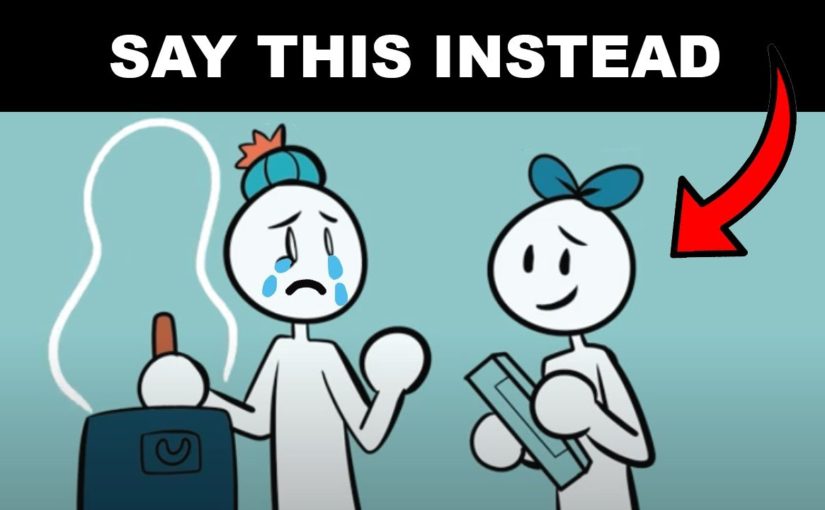
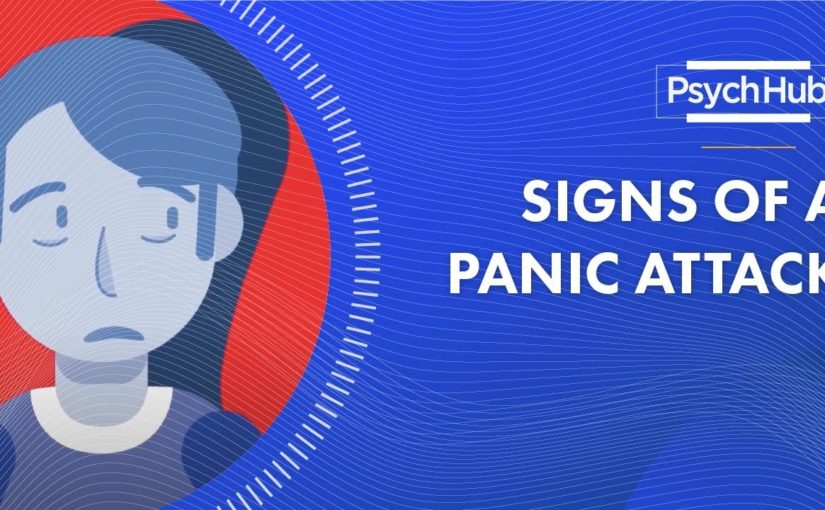




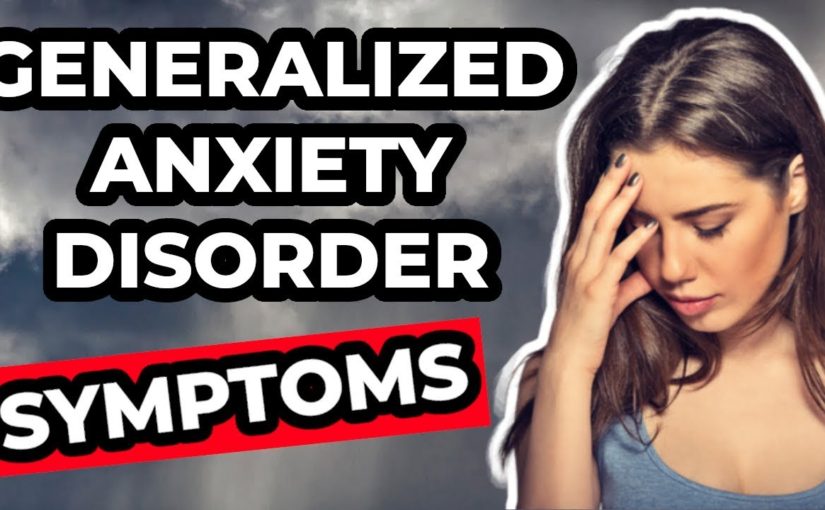


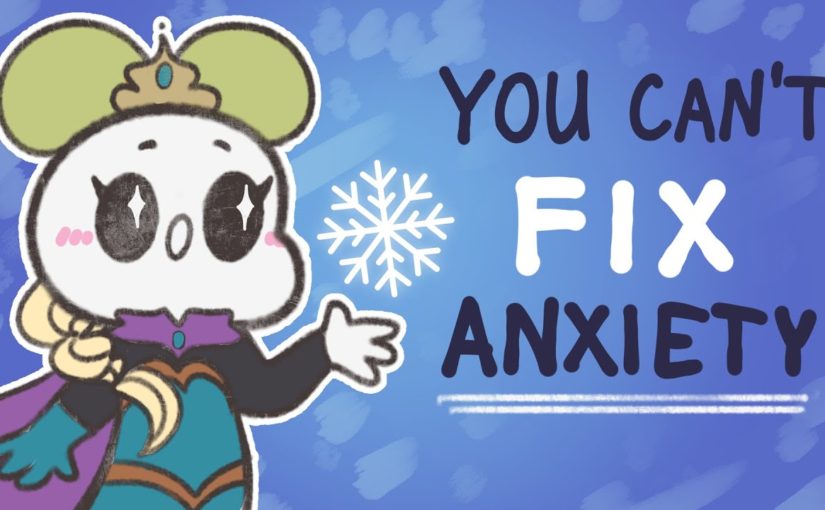
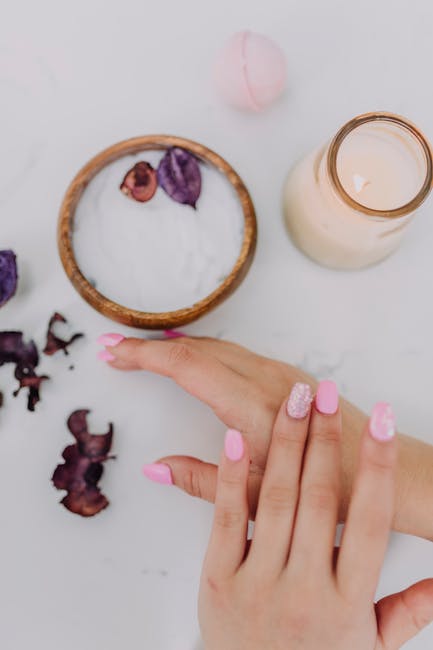
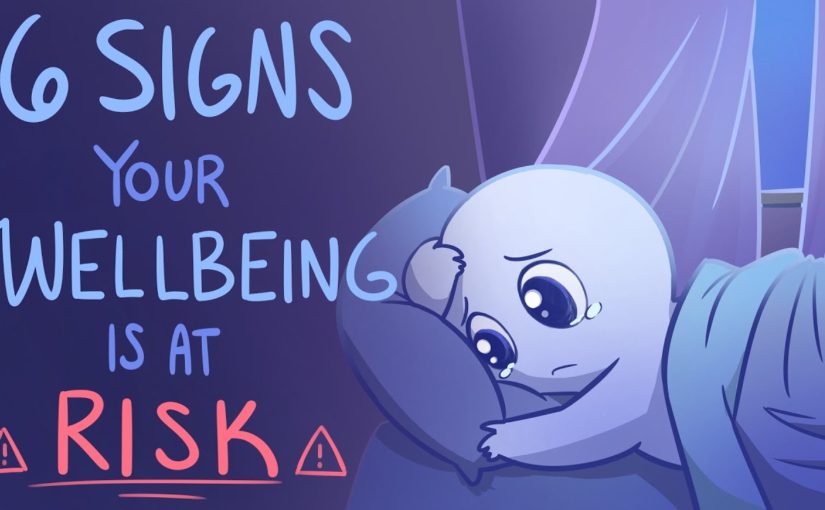

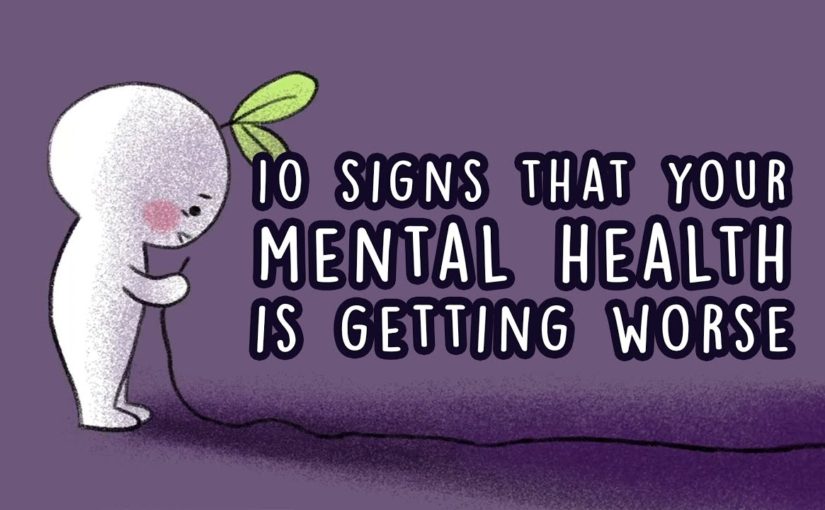

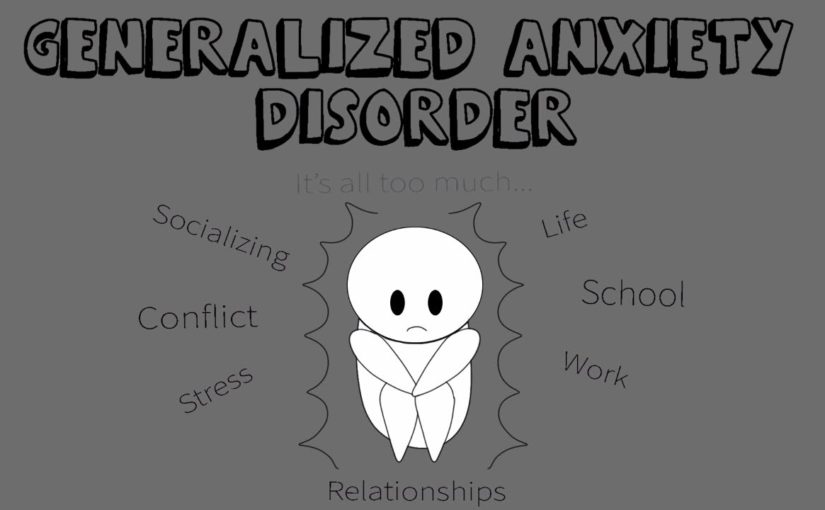


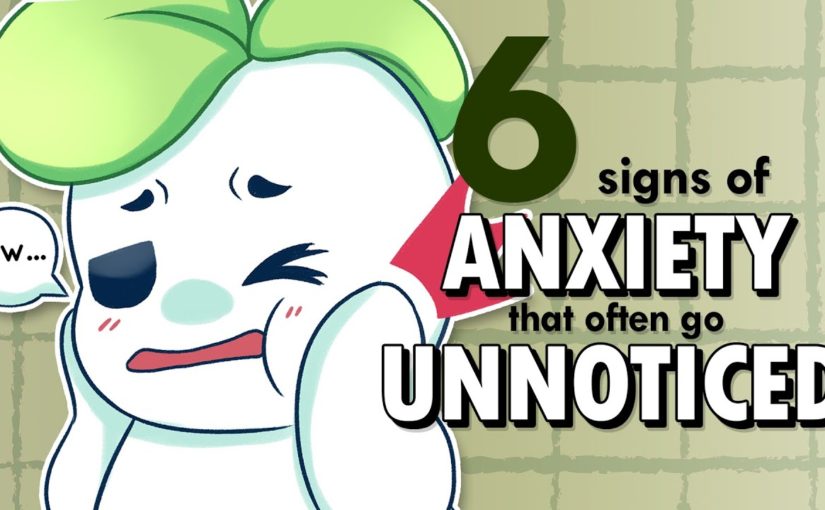
 Adrenaline helps you
redirect your blood flow so that most of it is sent
to your vital organs, like your heart and lungs. Consequently, your extremities
start to feel cold. Number four is irritability. Do you easily become irritated? Irritability is a common sign of anxiety. However, it’s a symptom we
often overlook or ignore. It’s a sign that you’re
overwhelmed with stress. Anxiety is associated
with hypersensitivity, meaning that you’ll be much more sensitive to your surroundings, which may cause you to feel
more irritated than usual. Number five is impulsive buying. Another sign of anxiety is impulsivity. In this case, impulse buying. However, impulsivity can manifest itself in many ways, such
as engaging in risky behavior. Impulsivity because of anxiety can be due to numerous factors. The main one is that your
orbital frontal cortex, another branch of your
limbic system, is affected. Studies found that anxiety
increases the blood flow to that region, which
consequently, increases activity. An increase in activity can lead to either impulse control issues,
hoarding, or impulse spending. Additionally, anxiety affects
your prefrontal cortex and makes it harder for you to make wise and thoughtful decisions. Impulse buying, as well as hoarding, are also forms of self-soothing. They provide a false sense
of comfort and security. If you do find yourself caving in and taking financial risks, please consider reaching
out to a therapist for help. And number six, crying easily. When was the last time you cried? One last sign that goes
unnoticed is crying easily. Inexplicably bouts of crying can mean you’re overwhelmed by the
situation you find yourself in. Not only can it be because
of a sensitivity to stress, but it can also be due to
your fight or flight response. The correct terminology is
fight, flight, or freeze. Feeling stuck or freezing
amidst a perceived threat can progress these overwhelming
feelings of stress. When you find yourself crying, attempt to relax by taking a deep breath. Then allow yourself to cry. Crying can release all of those feelings you may be holding onto. It may be great to find
additional ways to self-soothe when you’re feeling anxious as well. So have you experienced
any of these signs? I have. What are some self-soothing
behaviors that help you? I enjoy walking. Feel free to let us know
in the comments below. Anxiety is quite common
and can be manageable. If you ever need help or guidance reaching out to a therapist
or mental health professional can be a good idea. Feel free to like and share
this video if it helped you, or if you think it
could help someone else. Don’t forget to hit the subscribe button and notification bell icon
for more videos like this. And thanks for reading, take care.
Adrenaline helps you
redirect your blood flow so that most of it is sent
to your vital organs, like your heart and lungs. Consequently, your extremities
start to feel cold. Number four is irritability. Do you easily become irritated? Irritability is a common sign of anxiety. However, it’s a symptom we
often overlook or ignore. It’s a sign that you’re
overwhelmed with stress. Anxiety is associated
with hypersensitivity, meaning that you’ll be much more sensitive to your surroundings, which may cause you to feel
more irritated than usual. Number five is impulsive buying. Another sign of anxiety is impulsivity. In this case, impulse buying. However, impulsivity can manifest itself in many ways, such
as engaging in risky behavior. Impulsivity because of anxiety can be due to numerous factors. The main one is that your
orbital frontal cortex, another branch of your
limbic system, is affected. Studies found that anxiety
increases the blood flow to that region, which
consequently, increases activity. An increase in activity can lead to either impulse control issues,
hoarding, or impulse spending. Additionally, anxiety affects
your prefrontal cortex and makes it harder for you to make wise and thoughtful decisions. Impulse buying, as well as hoarding, are also forms of self-soothing. They provide a false sense
of comfort and security. If you do find yourself caving in and taking financial risks, please consider reaching
out to a therapist for help. And number six, crying easily. When was the last time you cried? One last sign that goes
unnoticed is crying easily. Inexplicably bouts of crying can mean you’re overwhelmed by the
situation you find yourself in. Not only can it be because
of a sensitivity to stress, but it can also be due to
your fight or flight response. The correct terminology is
fight, flight, or freeze. Feeling stuck or freezing
amidst a perceived threat can progress these overwhelming
feelings of stress. When you find yourself crying, attempt to relax by taking a deep breath. Then allow yourself to cry. Crying can release all of those feelings you may be holding onto. It may be great to find
additional ways to self-soothe when you’re feeling anxious as well. So have you experienced
any of these signs? I have. What are some self-soothing
behaviors that help you? I enjoy walking. Feel free to let us know
in the comments below. Anxiety is quite common
and can be manageable. If you ever need help or guidance reaching out to a therapist
or mental health professional can be a good idea. Feel free to like and share
this video if it helped you, or if you think it
could help someone else. Don’t forget to hit the subscribe button and notification bell icon
for more videos like this. And thanks for reading, take care.
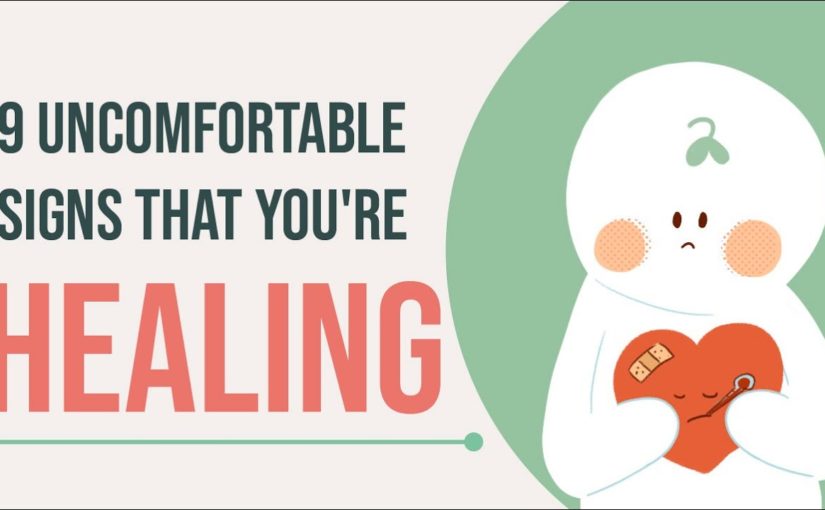
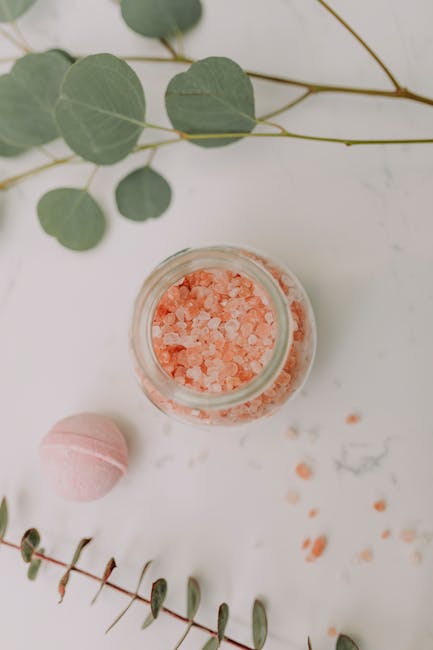 However, if you decide to it has far-reaching benefits beyond the acceptance and acknowledgment of the traumatic experience Once you are in the healing process, you are developing bravery around your emotions and your mind With this newfound conscious control. You are no longer scared by things that scared you before Scared of making a living situation change. You now are redecorating your bedroom and experimenting with paint colors. You never thought you would Go to a party you don’t know Before you would’ve recoiled at the thought, but now it’s a little less anxiety-inducing and you have a bit more confidence Number seven. You easily accept disappointments and take them in stride. Life is a balance of success and failure, light and dark ups and downs. When you’re not healing disappointments hit, you like a freight truck to the chest, knocking all of the motivation and passion out of you With healing you understand that bad days do happen and can’t be avoided, but are also temporary Any disappointments or unmet Expectations are accepted and taken in stride. You respond in better healthier ways that are less reactive Number. Eight you have more inner peace Healing brings about self-integration. If you’re a Harry Potter, fan it’s as if Voldemort brought back all of his Horcruxes and decided on becoming a better complete person who accepts the natural way of life on a soul level. And if you’re, not a fan. It’s like taking inventory of all of your experiences painful or not, and seeing yourself as the whole person You develop this inner peace because you deeply forgive yourself and you can readily forgive others too. By having this peace and integration, you are less likely to self-sabotage because you’re no longer a warring country within yourself with conflicting desires and emotions. You reconcile your inner differences. You no longer criticize and dismantle your character in your mind And number nine. You welcome help and support The independent survivor. Has a don’t ask for help mentality, maybe because they never got it when they needed it or because of the harsh rejection when they spoke up, They shut down to get by and decided to do it by themselves because they had no choice With healing You start to realize that as strong as you are, you can’t carry and do everything by yourself. You do need help and we all do and it’s available out there for you. You are more open to support and less afraid of having this need for assistance met. The pride and shame you might feel for asking for help are gone, because you know that it’s, okay, to let go of the heavy burden on your shoulders and have someone to lean on. Did you relate to any of these points? Do you feel that you are beginning to heal As rewarding as the first step of healing? You will run into the discomfort of your healing and this will try to make you stop to lessen or ignore the pain, but whatever you resist you prolong. If you are in the healing process, well done, I’m proud of you for doing this work and I hope you can find peace through it And if you’re not that’s, okay, because healing is a long process that takes time you’re still living and doing what you can Applaud yourselves. Did you find this video valuable, Tell us in the comments below Please like and share it with friends that might find use in this video too, and make sure to subscribe to Psych2Go and hit the notification bell for more content. All the references used are added in the description box below. Thank you for watching and see you next time…
However, if you decide to it has far-reaching benefits beyond the acceptance and acknowledgment of the traumatic experience Once you are in the healing process, you are developing bravery around your emotions and your mind With this newfound conscious control. You are no longer scared by things that scared you before Scared of making a living situation change. You now are redecorating your bedroom and experimenting with paint colors. You never thought you would Go to a party you don’t know Before you would’ve recoiled at the thought, but now it’s a little less anxiety-inducing and you have a bit more confidence Number seven. You easily accept disappointments and take them in stride. Life is a balance of success and failure, light and dark ups and downs. When you’re not healing disappointments hit, you like a freight truck to the chest, knocking all of the motivation and passion out of you With healing you understand that bad days do happen and can’t be avoided, but are also temporary Any disappointments or unmet Expectations are accepted and taken in stride. You respond in better healthier ways that are less reactive Number. Eight you have more inner peace Healing brings about self-integration. If you’re a Harry Potter, fan it’s as if Voldemort brought back all of his Horcruxes and decided on becoming a better complete person who accepts the natural way of life on a soul level. And if you’re, not a fan. It’s like taking inventory of all of your experiences painful or not, and seeing yourself as the whole person You develop this inner peace because you deeply forgive yourself and you can readily forgive others too. By having this peace and integration, you are less likely to self-sabotage because you’re no longer a warring country within yourself with conflicting desires and emotions. You reconcile your inner differences. You no longer criticize and dismantle your character in your mind And number nine. You welcome help and support The independent survivor. Has a don’t ask for help mentality, maybe because they never got it when they needed it or because of the harsh rejection when they spoke up, They shut down to get by and decided to do it by themselves because they had no choice With healing You start to realize that as strong as you are, you can’t carry and do everything by yourself. You do need help and we all do and it’s available out there for you. You are more open to support and less afraid of having this need for assistance met. The pride and shame you might feel for asking for help are gone, because you know that it’s, okay, to let go of the heavy burden on your shoulders and have someone to lean on. Did you relate to any of these points? Do you feel that you are beginning to heal As rewarding as the first step of healing? You will run into the discomfort of your healing and this will try to make you stop to lessen or ignore the pain, but whatever you resist you prolong. If you are in the healing process, well done, I’m proud of you for doing this work and I hope you can find peace through it And if you’re not that’s, okay, because healing is a long process that takes time you’re still living and doing what you can Applaud yourselves. Did you find this video valuable, Tell us in the comments below Please like and share it with friends that might find use in this video too, and make sure to subscribe to Psych2Go and hit the notification bell for more content. All the references used are added in the description box below. Thank you for watching and see you next time…
